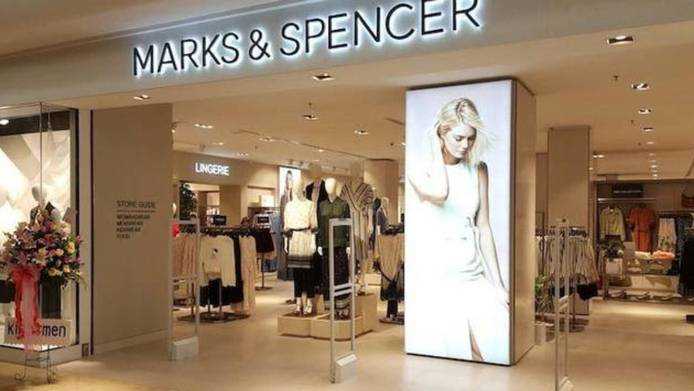Marks & Spencer pledges to be net-zero by 2040

Image: Collected
Marks & Spencer has pledged to be net zero by 2040.
Its timeline includes a 34 percent reduction in carbon emissions by 2025, a 55 percent reduction by 2030, and finally net zero status by 2040.
Part of the company’s decarbonization process includes a commitment to zero deforestation in palm oil and soy sourcing and obtaining more sustainable fibers by 2025.
The retailer has also pledged to support its Select Farm partners in lowering their carbon footprint with a five-year Farming with Nature initiative.
This is a reset from Marks & Spencer’s original Plan A scheme, launched in 2007. CEO Steve Rowe spoke to shareholders explaining the decision. In “resetting Plan A with a singular focus” Marks & Spencer can “drive the delivery of net zero across our entire end-to-end supply chain”, he said, adding: “this is not a far-away promise; we must act now to rapidly cut our footprint.”
As a part of their initiative to become net-zero, Marks & Spencer has introduced three colleague initiatives, the first of which identifies 100 colleagues as ‘Carbon Champions’ whose key roles in buying, sourcing and operations are helping to achieve net-zero.
The company’s second initiative focuses on the development of a programme that will educate colleagues on carbon literacy and how to identify carbon related risks. Lastly, Marks & Spencer will be launching its new online site called ‘Green Network’, in order to encourage the sharing of ideas and promote innovation.
With the M&S Family Matters report revealing a growing level of concern about climate change in UK families, the company has created a programme to incentivize customers to achieve a lower carbon footprint. Around 64 percent of the 5,000 respondents highlighted climate change as a key matter. Marks & Spencer’s programme includes a reward programme for its 12 million Sparks customers, so that when they donate clothes to Oxfam they receive a free treat on their account through a QR code.
Its timeline includes a 34 percent reduction in carbon emissions by 2025, a 55 percent reduction by 2030, and finally net zero status by 2040.
Part of the company’s decarbonization process includes a commitment to zero deforestation in palm oil and soy sourcing and obtaining more sustainable fibers by 2025.
The retailer has also pledged to support its Select Farm partners in lowering their carbon footprint with a five-year Farming with Nature initiative.
This is a reset from Marks & Spencer’s original Plan A scheme, launched in 2007. CEO Steve Rowe spoke to shareholders explaining the decision. In “resetting Plan A with a singular focus” Marks & Spencer can “drive the delivery of net zero across our entire end-to-end supply chain”, he said, adding: “this is not a far-away promise; we must act now to rapidly cut our footprint.”
As a part of their initiative to become net-zero, Marks & Spencer has introduced three colleague initiatives, the first of which identifies 100 colleagues as ‘Carbon Champions’ whose key roles in buying, sourcing and operations are helping to achieve net-zero.
The company’s second initiative focuses on the development of a programme that will educate colleagues on carbon literacy and how to identify carbon related risks. Lastly, Marks & Spencer will be launching its new online site called ‘Green Network’, in order to encourage the sharing of ideas and promote innovation.
With the M&S Family Matters report revealing a growing level of concern about climate change in UK families, the company has created a programme to incentivize customers to achieve a lower carbon footprint. Around 64 percent of the 5,000 respondents highlighted climate change as a key matter. Marks & Spencer’s programme includes a reward programme for its 12 million Sparks customers, so that when they donate clothes to Oxfam they receive a free treat on their account through a QR code.
Source: https://fashionunited.uk
Tags :
Previous Story
- In The Style issues profit warning amid soaring...
- Ted Baker posts 50 percent sales growth in...
- ‘Prioritize social protection in economical support, not growth’
- Half of UK fast fashion is made from...
- Amid industry upheaval, Bangladesh is a safe couple...
- Pursuing climate actions in the Bangladesh apparel industry
- Vaccine rollout cheers up stock investors
- The UK Virgin Islands Reopened To Tourism This...